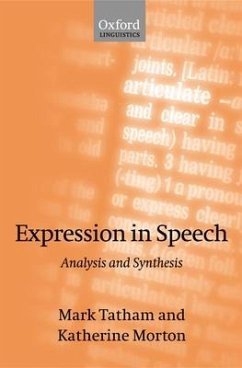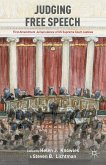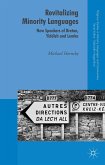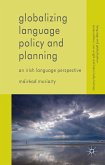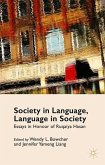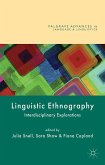Acknowledging that such testing presupposes a comprehensive computational model of speech production, they put forward original proposals for its foundations and show how the relevant data structures may be modelled within its framework. This pioneering book will be of central interest to researchers in linguistics and in speech science, pathology, and technology. It will also be valuable for behavioural and cognitive scientists wanting to know more about this vital and elusive aspect of human behaviour.
All human speech has expression. It is part of the 'humanness' of speech, and is a quality listeners expect to find. Without expression, speech sounds lifeless and artificial. Remove expression, and what's left is the bare bones of the intended message, but none of the feelings which surround the message. The purpose of this book is to present research examining expressive content in speech with a view to simulating expression in computer speech. Human beings communicate expressively with each other in conversation: now in the computer age there is a perceived need for machines to communicate expressively with humans in dialogue.
All human speech has expression. It is part of the 'humanness' of speech, and is a quality listeners expect to find. Without expression, speech sounds lifeless and artificial. Remove expression, and what's left is the bare bones of the intended message, but none of the feelings which surround the message. The purpose of this book is to present research examining expressive content in speech with a view to simulating expression in computer speech. Human beings communicate expressively with each other in conversation: now in the computer age there is a perceived need for machines to communicate expressively with humans in dialogue.

